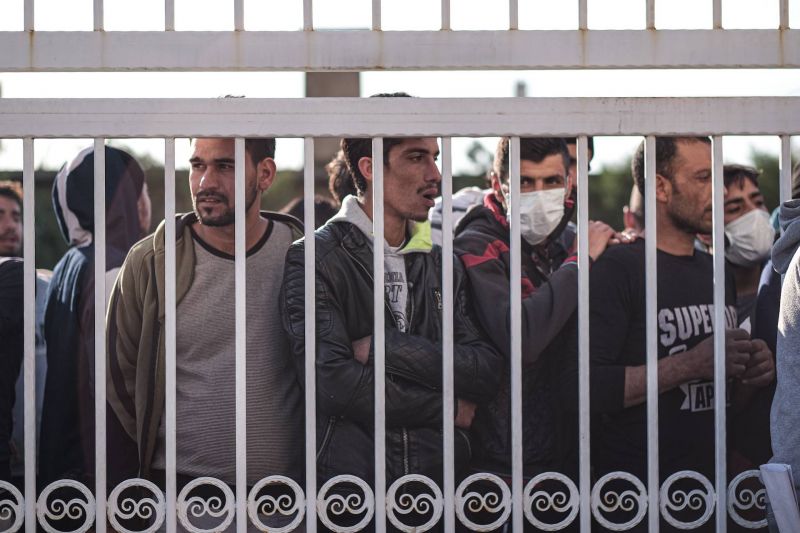
Syrian refugees wait for assistance after a fire destroyed their camp near Tripoli, Lebanon. Dec. 30, 2020. (Credit: João Sousa/L'Orient Today/File photo)
BEIRUT — A spate of new, municipal-level restrictions against Syrian nationals, sparked by the murder this month of a Lebanese Forces official, is raising questions over whether such “bans” and other regulations are legal.
The new regulations come amid rising vigilante violence against Syrians in Lebanon, and increased calls by politicians to repatriate them.
An estimated 1.5 million Syrians live in Lebanon, about 800,000 of them UN-registered refugees who fled their country’s war since 2011.
After the killing of Lebanese Forces (LF) official Pascal Sleiman in early April, which some LF supporters blamed on Syrians, some municipalities in Lebanon issued decrees to restrict the movement or entry of Syrian nationals.
Among those municipalities was Jub Jennin in the Bekaa Valley, which issued a statement on April 8, after the killing of Sleiman, telling Syrians to stay at home and close their shops. The Jub Jennin municipality did not respond to requests for comment by time of publication.
The exact number of municipalities that issued such statements was not immediately clear.
So what is the legality of those restrictions? Or are they merely an intimidation tactic?
The mayor in Beit al-Chaar, a village in the Metn district that has had multiple public banners since months before Sleiman’s killing, which state that foreigners are “banned” from moving around from 8 p.m. to 6 a.m.
However, Beit al-Chaar mayor Adib Salmoun told L’Orient Today that such banners “do not have any [legal] effect.”
When asked about the point of hanging up these posters, which hang over the entrance of the village as well as its main public square, Salmoun said that he is not aware of them.
Lala, a town in the Bekaa Valley, also released a statement in recent days restricting Syrians’ movement. However, mayor Nasser Rahal told L’Orient Today that the municipality cannot enforce such decisions without state backing.
“We need security forces to reinforce the decisions we make, we cannot implement these decisions alone, it is in the hands of the government,” he said.
Lebanese human rights lawyer Nadine Kheshen told L’Orient Today that such decisions from municipalities go against the UN convention for the elimination of racial discrimination, to which Lebanon is a signatory.
The convention prohibits discrimination based on, among other things, “national or ethnic origin.”
Kheshen also explained how municipalities can issue restrictions on freedom of movement in the case of emergencies like the case of COVID.
“There are some circumstances under which measures that restrict freedom of movement would be permitted, such as a state of emergency. But even then, the policy must apply to everyone and not discriminate against one nationality. Doing so violates Lebanon’s international obligations under the convention for the elimination of racial discrimination,” Kheshen said.
Instead, Kheshen said she believes that municipalities are using the restrictions in an attempt to pressure the international community for more funding toward the Syrian refugee response.
"They are trying to increase their donor funding to Lebanon to support refugees here — since they are already providing funding, but the government is saying this is insufficient,” Kheshen added.
“Parties are blaming any economic crisis on the refugees to put pressure on the file,” said Mohamad Sablouh, a human rights lawyer who has represented Syrian refugees in Lebanon. “The government is also pressuring the international community to give it money otherwise they would blow up the matter in the country.”
Sablouh added that the recent restrictions are part of a “racist campaign” against Syrians.
“Sometimes it comes from ministers in the government. Every time something happens [caretaker Interior Minister Bassam Mawlawi] blames the Syrians. When he does this he is encouraging violent campaigns against Syrians.”
Mawlawi on Thursday issued a statement calling on Syrians without “security reasons” for staying in Lebanon to leave, though added that he was against vigilante violence.
“Municipalities are keeping up with this campaign issuing unfair decisions,” Sablouh said.
“This is a violation of freedom.”